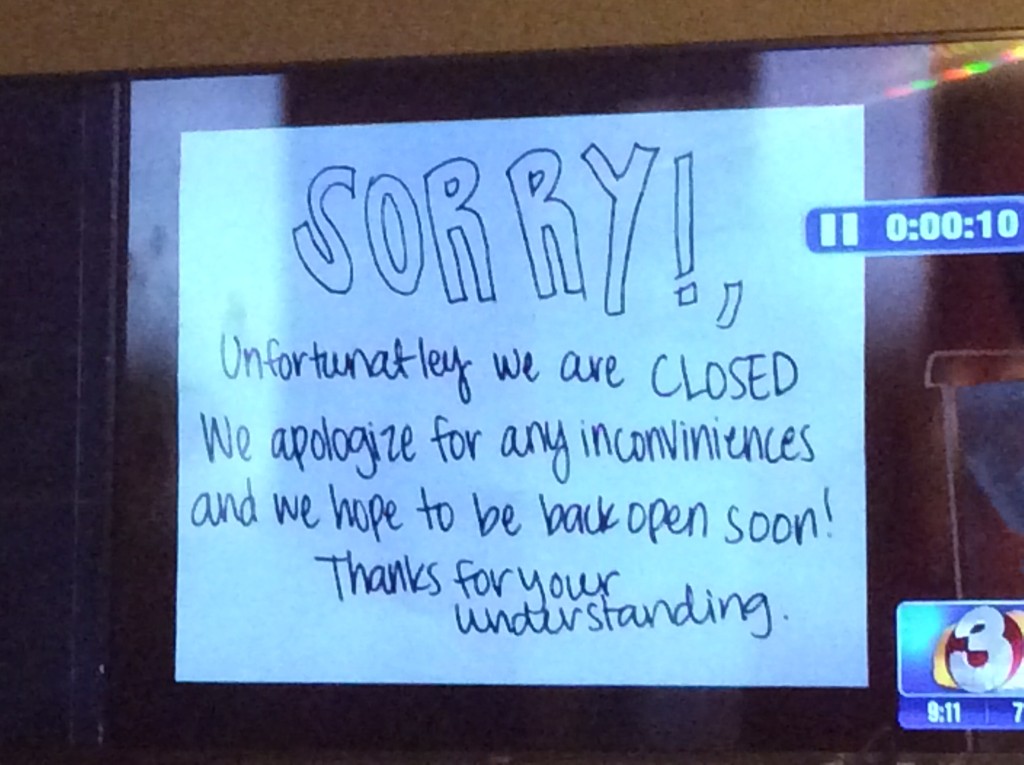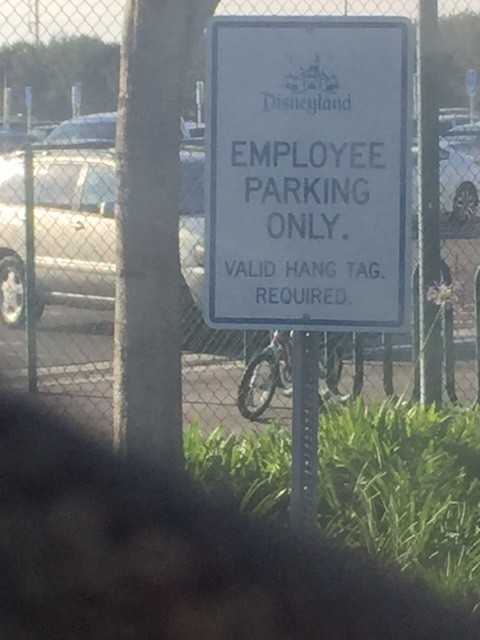This one was on the news but this time it wasn’t the news channel’s fault.

This one was on the news but this time it wasn’t the news channel’s fault.

I caught this sign recently. It appeared to be a normal “For Rent” sign, until I saw the “No Vacancy” sign–on the same sign. Apparently you can rent the house, but you can’t live there.

This topic came up recently in my own task of proofreading. If you have an acronym or another all capital letter word, how do you make it plural or possessive? And then once you do, is the added pluralization or possession in all caps or not?
The short answer is that any pluralization or possession is added to the base word, but in this case, it is NOT in all caps:
There are times where you will need to use an apostrophe to avoid confusion:
Here, the “A’s and B’s” are not possessive, but it could be confusing to leave the apostrophe out in “As” as it is a different (and real) word. In this case, the apostrophe in “B’s” is for consistency.
There is some confusion when using abbreviations because making the abbreviations possessive may be different than making the entire original words possessive:
You will use the rules depending on how it sounds. The “United States” spelled out does not need an apostrophe and “s” because you don’t say the extra “s.” But using the abbreviation “U.S.,” you would say the extra “s,” so would add the apostrophe and “s.” See Apostrophail!.
Just remember that only the original acronym or abbreviation should be in caps and any pluralization or possession would be added to that, but not in caps.
My son caught this at a convenience store near his house. I don’t even know what this sign means. He said he thinks it means that shoppers need to leave backpacks or bags at the front while they are shopping. I think if that’s what they meant, that’s what they should have said.

I caught this one driving by one of my favorites, Pita Jungle, recently. It’s a nice sign, except for the misspelling of “occasions.”

A friend sent this one to me. Headlines are what make readers want to read an article. A headline with TWO errors certainly does not entice me to read one. Headlines—and inside addresses in letters (including the “re:” line) and document headings and captions–are at least as important as the rest of the document and help a reader who is skimming your work decide if they want to spend the time actually reading some of it.

A good friend asked if I would write on the use of foreign words/languages in English writing, particularly whether we should include the foreign characters, accent marks, etc. in our legal writings.
The basic answer is sometimes.
If a foreign word has become a part of the English language, like résumé, it does not need to be italicized. NOTE: I am using italics here just to emphasize the words I am talking about. Some words and phrases will retain the diacritical marks, such as the accent marks in résumé, vis-á-vis, and the circumflex in paper-mâche, but the words are not italicized.
According to The Bluebook A Uniform System of Citation, foreign words and phrases that are used often in legal writing and are familiar to the legal community are not italicized, but foreign words and phrases that are very long, obsolete, or uncommon Latin, should be italicized. For instance, do italicize:
But not:
Note, however, that id. is always italicized (including the period), but e.g. is only italicized when it is used as a signal as in See, e.g., Smith v. Brown. In re and ex rel. and other such procedural phrases are always italicized.
Avoid using Latin or other foreign words and phrases where it is not necessary and where an English word or phrase will work just as well and that will avoid the issue altogether, but when you do use them, if it is well known to the legal community or well integrated into the English language, retain its diacritical marks, but do not italicize.
I found this in a grocery store in Albuquerque. If I were to read this sign literally, I would see that it is $9.99 for the Cod Fillet’s 16 oz. bag, which sounds significantly overpriced unless it is a designer bag. And to warrant a sign, that Cod Fillet must have more bags than some of my friends do. I’m pretty sure they meant to say that the $9.99 was for a 16 oz. bag of cod fillets, but that’s not what it actually says.

I caught this one on a trip back from Albuquerque recently. Even my grandchildren knew this was wrong (since they had to figure out why I had my phone out taking a picture in the middle of a store).

I spent a lot of time at Disneyland in the last month. I have a lot of respect for Disney and the way they operate the Parks. While I looked for signs with errors, I didn’t find anything in either Disneyland Park or California Adventure, so my dream job (wandering around Disneyland looking for grammar errors) was out the window. But in my second trip, while on a shuttle bus from a parking area to the Parks, my son caught this one. With apologies for the less-than-clear picture (it was taken through a dirty bus window), you should get the idea. In Disney’s defense, I was not near the sign, so was not able to confirm that the extra period was an error and not squashed bugs, so I’m going with an error–and an opportunity for my dream job!
